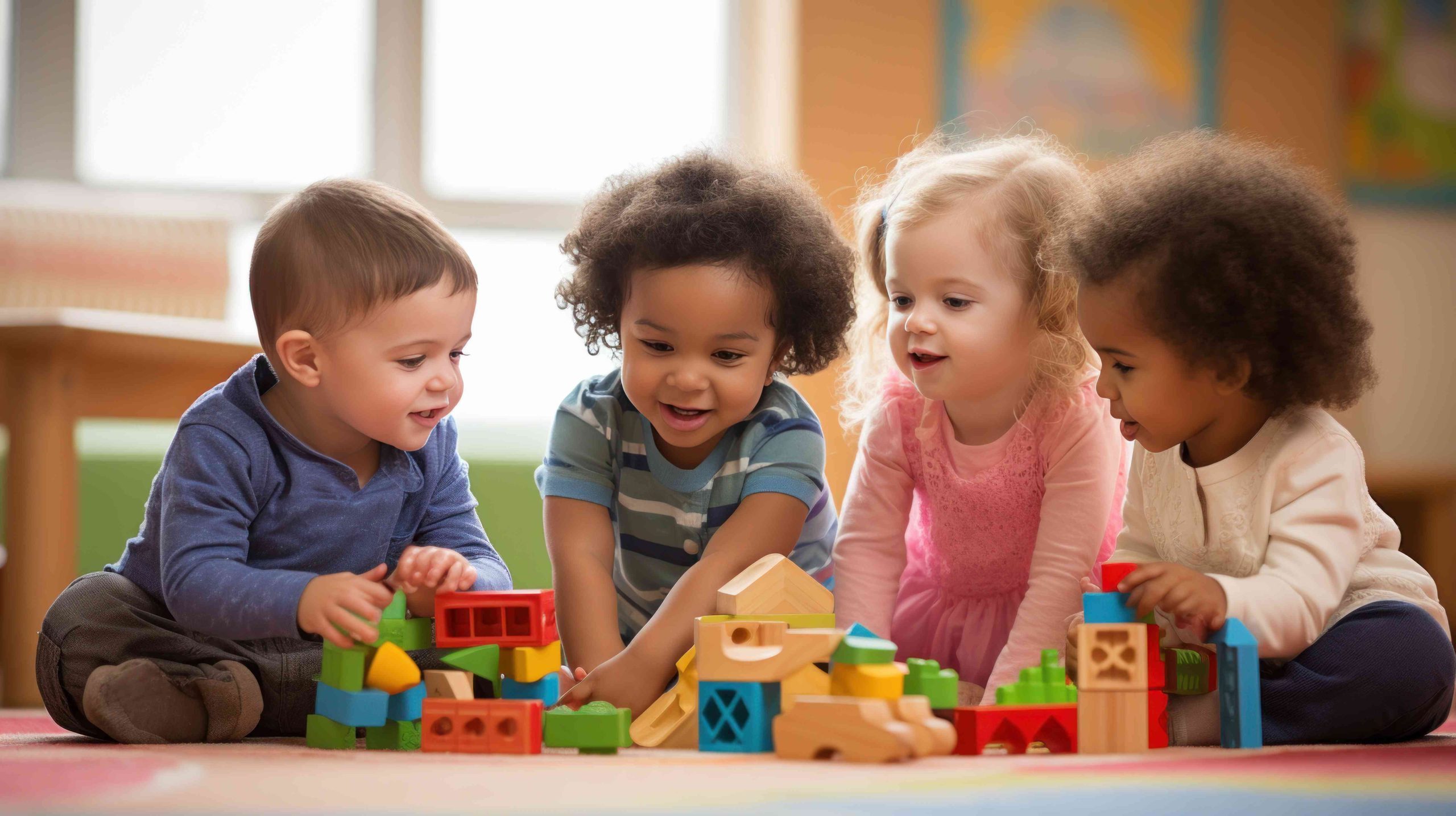
Unlocking the Secrets of Preschool Curriculum: A Guide for Young Learners
As parents, we all aim for our preschoolers to embark on their educational journey with a solid start. Opting for a preschool with a comprehensive curriculum can be pivotal in unleashing their potential. But what exactly should one anticipate from a preschool curriculum? In this article, we’ll delve into the typical preschool curriculum and its benefits for young learners.
Understanding the Goals of Preschool Curriculum
The primary objective of preschool curriculum is to introduce youngsters to learning in an engaging manner. It endeavors to instill a love for learning, nurture creativity, and lay a sturdy foundation for future academic endeavors. Typically, the curriculum is divided into domains such as social-emotional development, cognitive development, language and literacy, and physical development.
Language and literacy development are fundamental aspects of preschool curriculum, facilitating effective communication and comprehension of the world. This article delves into the significance of fostering language and literacy development and outlines best practices for achieving these objectives.
The preschool curriculum aims to cultivate robust language skills, encompassing speaking, listening, and understanding, alongside pre-reading and writing abilities like letter recognition and phonemic awareness. Preschool educators employ diverse techniques, including storytelling and group conversations, fostering meaningful interactions.
Promoting Literacy Development in Preschool Curriculum
Promoting literacy development is pivotal in equipping preschoolers with the necessary skills for reading and writing. Educators employ varied methods such as reading aloud, playing word games, and letter recognition activities to familiarize children with sounds, words, and letters.
Cultivating a print-rich environment is imperative for promoting language and literacy development naturally. By immersing children in print materials like books and labels, educators encourage interaction with print, introducing new vocabulary and concepts.
Vocabulary development is another crucial aspect, aiding effective communication and comprehension. Introducing new words through storytelling and reading, alongside encouraging their usage in daily conversations, facilitates effective vocabulary acquisition.
Recognizing that each child develops at their own pace, educators must provide a supportive environment tailored to individual needs, offering personalized support as necessary.
In conclusion, the success of preschool curriculum in promoting language and literacy development hinges on employing varied strategies like storytelling, creating print-rich environments, vocabulary development activities, and individualized support. By incorporating these approaches, educators empower preschoolers to thrive academically and beyond.
Social-Emotional Development
Social-emotional development plays a crucial role in promoting emotional and social well-being in preschoolers. This article explores its importance and suggests best practices for its integration into the curriculum.
Cognitive Development
Cognitive development focuses on honing problem-solving, critical thinking, and decision-making skills in preschoolers. Activities in this domain challenge their thinking abilities and nurture intellectual curiosity, introducing basic math concepts and encouraging exploration.
Language and Literacy
Language and literacy development are integral to the preschool curriculum, fostering listening, speaking, reading, and writing skills. Through diverse activities, children explore language sounds, expand vocabulary, and enhance literacy skills.
Physical Development
Physical development concentrates on refining gross and fine motor skills, like running, jumping, and drawing. Various activities encourage exploration, develop coordination, and strengthen muscles, promoting holistic development.
The Role of Play in Preschool Curriculum
Play is pivotal in facilitating exploration, creativity, and social skills development. This article explores different play types and their contributions to the curriculum.
Play offers avenues for natural learning and skill development, fostering imagination, creative thinking, and social interaction, crucial for success.
Research confirms the efficacy of play-based learning in promoting cognitive, social, emotional, and physical development. Educators can integrate play into the curriculum through various methods like dramatic play, block play, and outdoor activities.
Exploring Different Types of Play
Dramatic play encourages imagination and social skill development as children enact various roles and scenarios. Block play enhances spatial awareness and creativity through building structures with different blocks.
Outdoor play promotes physical activity and environmental exploration, improving gross motor skills and fostering an appreciation for nature.
Play’s role in the curriculum is crucial for children’s development, enhancing problem-solving, creativity, and social skills through hands-on experiences.
Different Approaches to Preschool Curriculum
Various approaches to preschool curriculum offer unique philosophies, teaching strategies, and goals. This article explores popular approaches without altering their titles.
The Importance of Diversity in Preschool Curriculum
Preschool curriculum should reflect the diverse backgrounds and experiences of students, fostering empathy and respect. This article underscores the significance of diversity in the curriculum.
Technology in Preschool Curriculum
Technology’s integration can enhance engagement but necessitates caution. This article examines its potential benefits and drawbacks in the preschool classroom.
Creating a Safe and Supportive Learning Environment
Establishing a safe and supportive environment is crucial for preschoolers’ well-being and learning. This article outlines best practices for achieving this, including positive reinforcement and clear expectations.
Involving Parents in the Preschool Curriculum
Parental involvement is integral to a child’s preschool experience. This article explores avenues for parent engagement, such as conferences and at-home activities supporting the curriculum.
The Benefits of Outdoor Learning in Preschool Curriculum
Outdoor learning enhances cognitive function and physical health. This article delves into the advantages of outdoor learning and its impact on creativity and mental well-being.
Integrating Art and Music in Preschool Curriculum
Art and music integration fosters creativity and fine motor skills. This article explores their role in cultural exploration and expression within the curriculum.
Addressing Special Needs in the Preschool Curriculum
Individualized plans are essential for preschoolers with special needs. This article discusses strategies such as adaptive equipment and tailored teaching to support their development.
Assessment and Evaluation in Preschool Curriculum
Effective assessment tracks progress and identifies areas for improvement. This article explores different assessment methods and their role in preschool curriculum.


